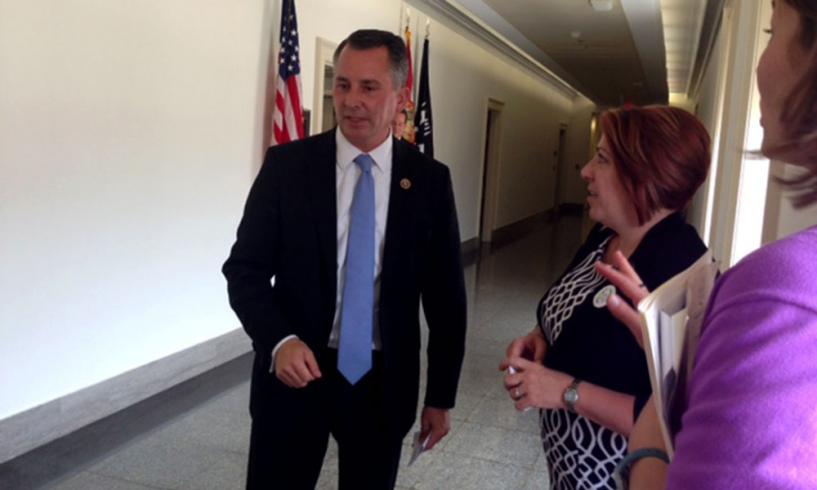By Fran Fanning, RN, BS, OCN
This summer I was given a distinct honor of representing ONS and my local chapter of Pinellas County, Florida, as an advocate for one of ONS’s coalition partnerships, the Patient Quality of Life Coalition (PQLC). We advocated for legislation entitled the Palliative Care and Hospice Education and Treatment Act (PCHETA), HR 3119/S 2748. This bill would bring about awareness and funding for necessary education to physicians, nurses, and other healthcare professionals who deal with chronic and/or terminal diseases by optimizing the quality of life through preventative and palliative care.
My team had the opportunity to speak to five members of the U.S. House of Representatives offices and their healthcare staff. We told them our firsthand stories of what we’ve experienced by treating patients through palliative care early in a diagnosis. We also discussed how it can improve the quality of life for them and caregivers too. I was greatly surprised by how many U.S. Representatives were aware of the benefits of palliative care. On the other hand, I was saddened by how many we spoke with didn’t truly understand what palliative care means, saying that it’s “end-of-life care, so how could it be beneficial?”
Being able to explain to them the psychological, physical, and social aspects of palliative care was important. We told them that when palliative care is incorporated into a patient’s treatment regimen, it can improve their chance of survival and quality of life. It was really an uplifting experience to advocate for the patient, my peers, and palliative care. We discussed patient experiences of those who had to go into a hospital or hospice center when they could have received simple supportive care measures by someone trained in palliative care. Congressional staff did not realize how damaging it can be to the psyche and spirit of a patient. We discussed the unnecessary cost of hospitalization, as well as the strain it puts on the already overcrowded hospitals that are not always equipped to manage serious illness.
As an oncology nurse, I’ve advocated for patients my entire career. I have fought to understand my patients’ wishes, goals, and desires throughout their care. Patient-centered care is essential. Because of biomedical advances, people are living longer and it’s more important than ever that palliative care be implemented sooner in their treatment. I am hopeful that from our PQLC Lobby Day that we had a positive impact and made our U.S. Representatives sit up and say, “I need to do more.”






